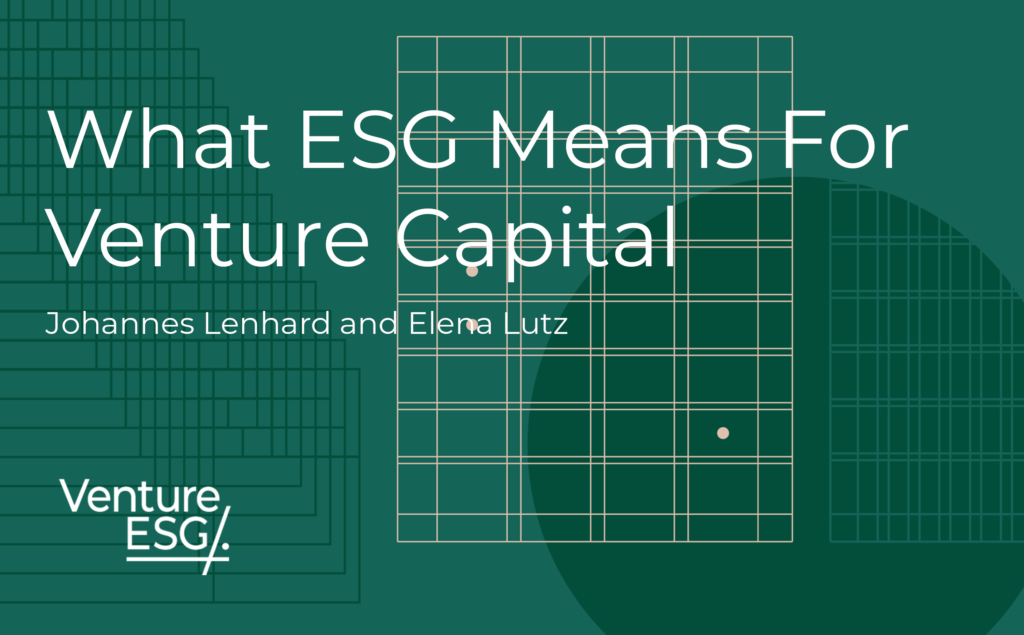Research
At VentureESG, we understand ourselves as an evidence- and research-driven organisation. We use our position at the cutting edge of ESG for VCs to conduct research to advance our knowledge of best practice. The insights we generate underpin the tools, resources and frameworks we produce. In all our research, we follow principles of co-production and involve our communities of VCs and LPs both in designing research questions and generating findings.
Get in touch about our current research projects or if you are interested in funding or working on new research opportunities.
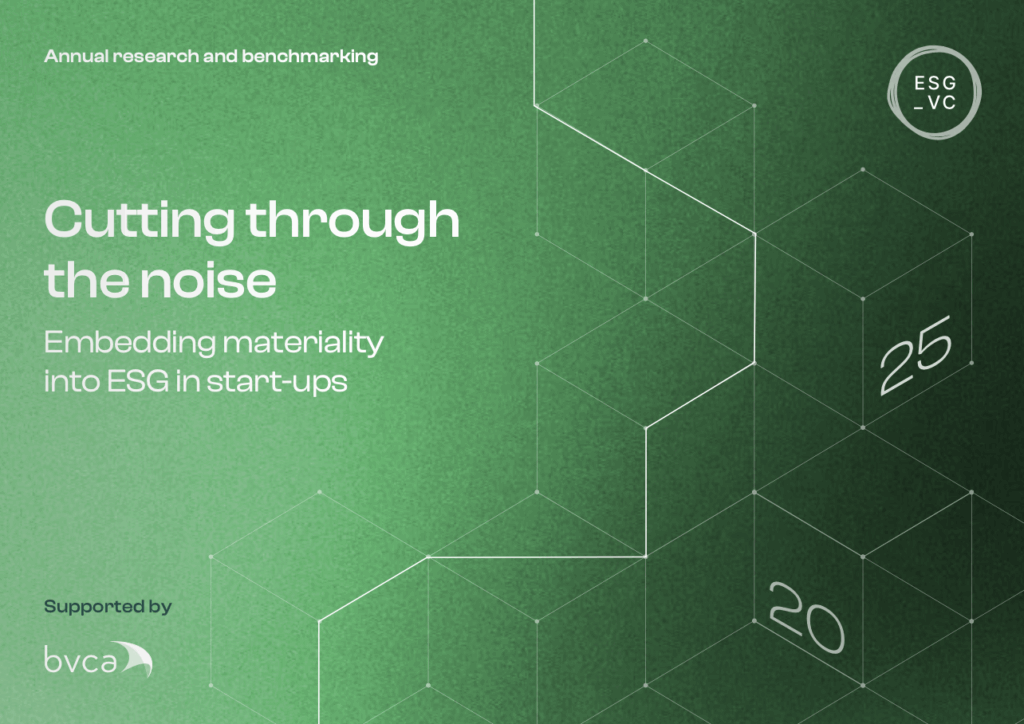
Annual Portfolio Benchmarking (ESG_VC)
Supported by BVCA
June 2025
How are portfolio companies responding to the evolving expectations around ESG? And how does ESG performance differ by stage, sector, and geography?
Drawing on data collected from 711 start-ups backed by 28 venture capital firms including Atomico, Beringea, Molten, Notion, and Oxford Science Enterprises, this research – delivered in partnership with the BVCA – analyses performance across 44 ESG metrics, benchmarked by sector and geography.
The benchmarking data included in this report provides LPs and VCs with valuable insights into best practice within their portfolio companies. The research also strengthens the argument for a materiality-based approach to ESG within venture-backed companies.
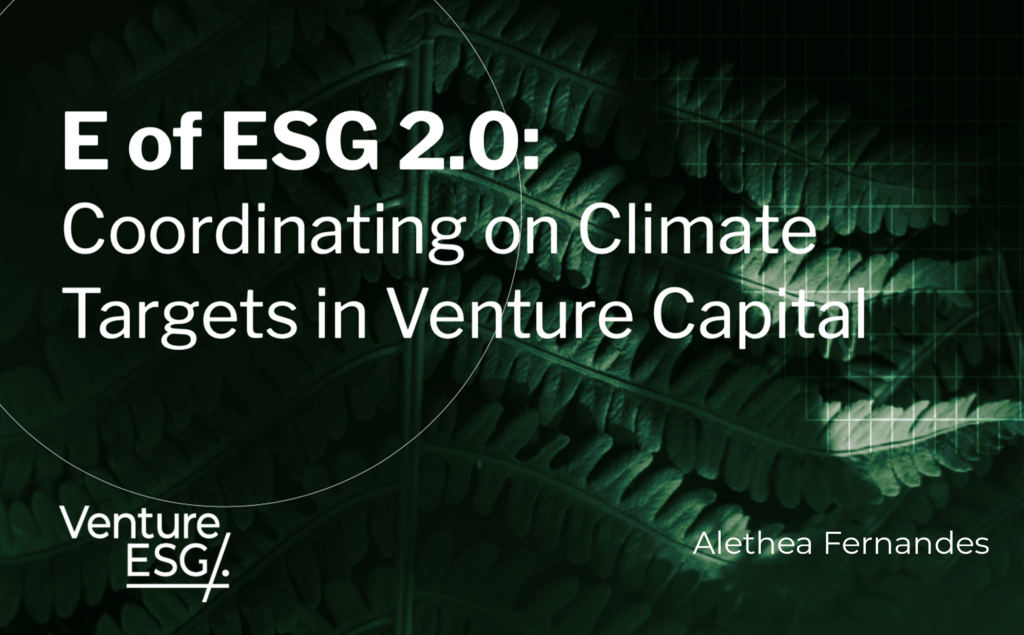
Coordinating on Climate Targets in Venture Capital
April 2025
Venture Capital is uniquely placed to drive climate action in early-stage companies, but faces specific hurdles in measuring and managing its financed emissions. This guidance, supported by Atomico and informed by 20+ interviews with VC ESG managers, investors, and sector specialists, helps VCs navigate this challenge. It’s designed for VCs starting their environmental journey, offering practical advice on target-setting, portfolio engagement and compensation of emissions within the venture ecosystem.
Rather than introducing yet another framework, this paper analyses and compares leading approaches building a staged-based guide as an overlay with existing frameworks to help VCs adopt suitable and feasible strategies. Key recommendations include aligning emission reduction targets with company maturity, prioritising engagement, and education early on, and using pragmatic tools for measuring financed emissions.
By building climate capability in line with portfolio development, VCs can reduce risks, unlock value, and contribute to net-zero ambitions without stifling innovation or growth. This resource is invaluable for generalist VCs seeking actionable steps to integrate environmental priorities – particularly regarding financed emissions – into their investment processes and portfolio management, making climate action more accessible and coordinated across the sector.
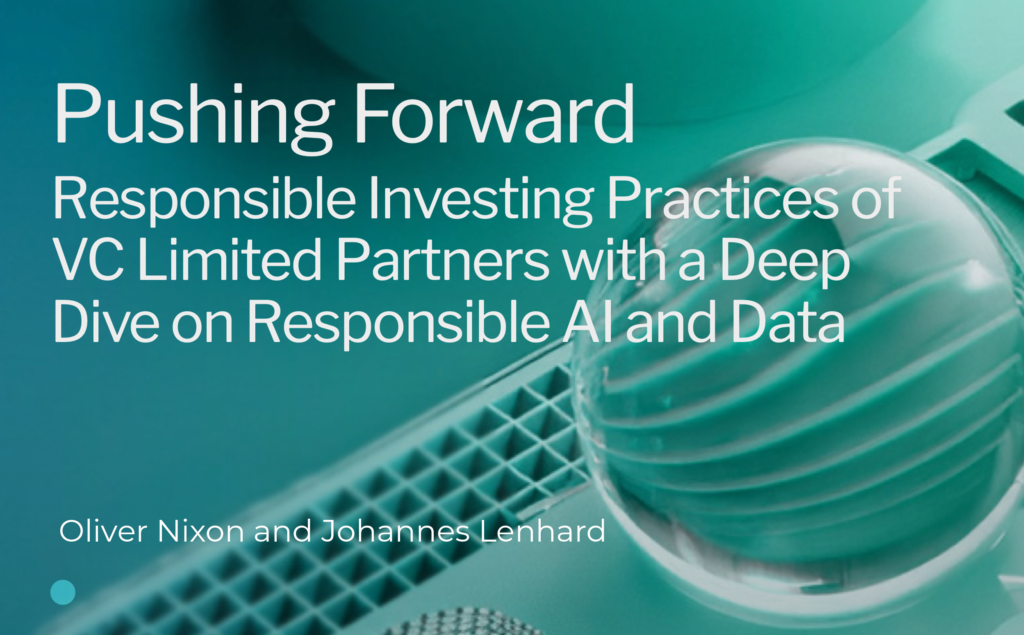
Pushing Forward: LP Practices in RI/ESG
Oliver Nixon and Johannes Lenhard
February 2025
What are institutional Limited Partners (LPs) — the biggest asset owners and asset managers — expecting from venture capital investors in terms of responsible investing (RI) and ESG practice?
Based on insights from convening 50 LPs in New York, London and Paris, and in-depth interviews with twenty-six LPs managing approximately $1.5 trillion and a supporting survey, this paper highlights the continued commitment across the US and Europe — despite a perceived backlash.
The research paper also contains a section specifically on LP’s perspectives and (limited) practices with regards to responsible investing in data and AI.
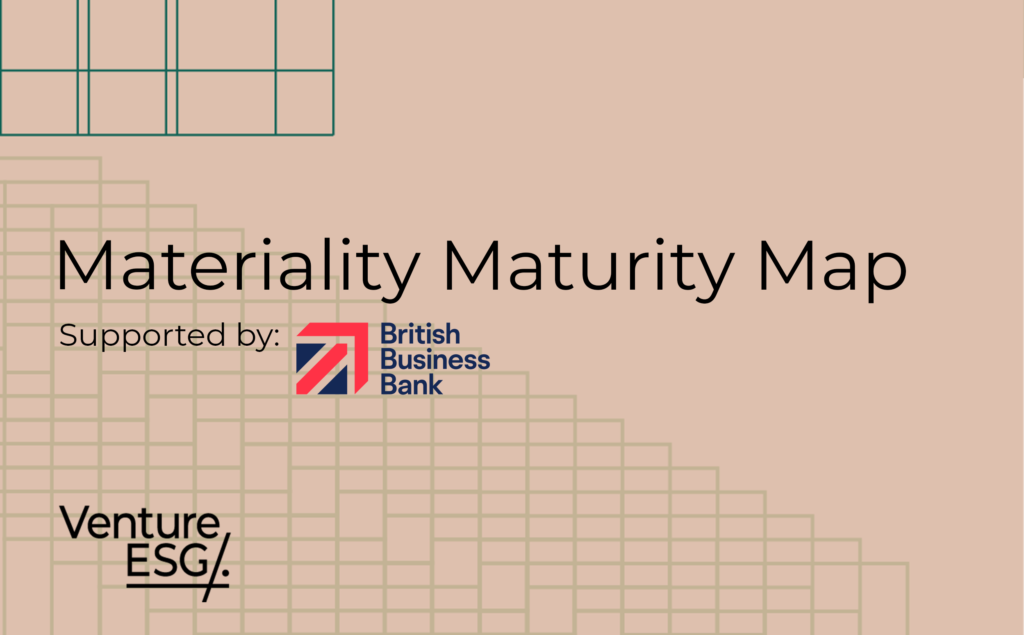
Materiality Maturity Map
Supported by British Business Bank
October 2024
One question frequently arises when it comes to ESG in venture capital: what ESG actions should be prioritised, and when? Through a six-month project in 2024 funded by the British Business Bank, VentureESG tackled this question, gathering insights from investors, exchanges, banks, LPs, and other stakeholders. The result is our Materiality Maturity Map (MMM) and whitepaper, a new tool designed to guide a dynamic, stage-specific approach to ESG materiality as VC-backed companies scale.
The MMM tool is primarily intended for Heads of ESG at VC firms, facilitating nuanced discussions with portfolio companies on evolving ESG priorities as they grow. Rather than a one-size-fits-all approach, it provides tailored guidance to support VC firms in identifying and addressing material ESG issues in a way that aligns with each company’s growth stage.
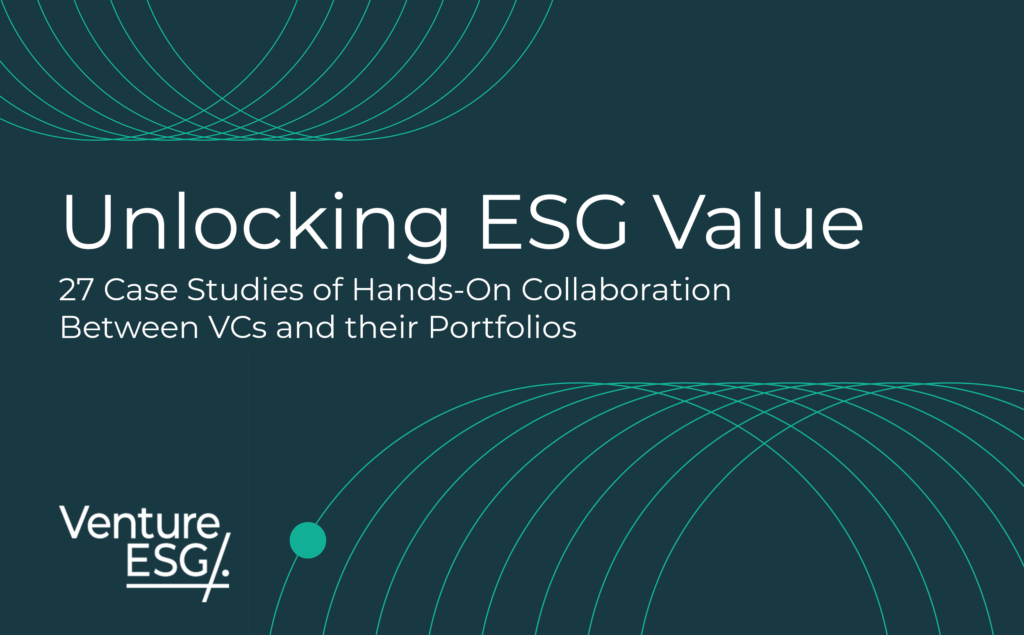
Unlocking ESG Value
Authors from 27 Funds
September 2024
Does ESG integration make any sense for VC-backed companies? The short answer is: we simply don’t have the long-term quantitative data. However, we do have case studies.
In this booklet, we’ve collected 27 case studies on how value-add portfolio work can be done. We cover a large variety of geographies, stages and maturity levels; the result is a comprehensive ‘business case’ for portfolio and platform work around ESG.
The goal of this booklet is to share developing best practices and encourage other VC funds to follow suit; identifying material ESG issues — ideally during the diligence phase — and working with your portfolio companies on improving on those challenges makes financial sense.
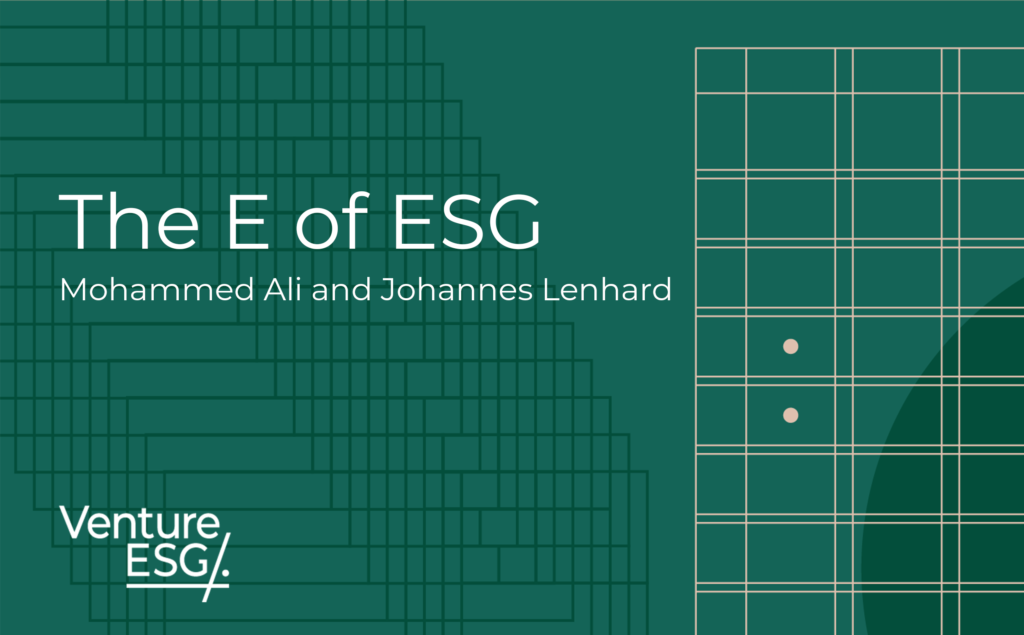
The E of ESG
Environmental (“E”) materiality allows VCs and their portfolio to identify and prioritize the most critical environmental issues for their operations.
VCs can mitigate potential risks and uncover opportunities for cost savings and value creation by pinpointing these material environmental factors, such as climate impact, resource utilization, and regulatory compliance. Drawing on insights from 20+ interviews with VC ESG managers, investors and sector specialists, this guide is most useful for VCs starting their environmental journeys rather than the expert climate investors.
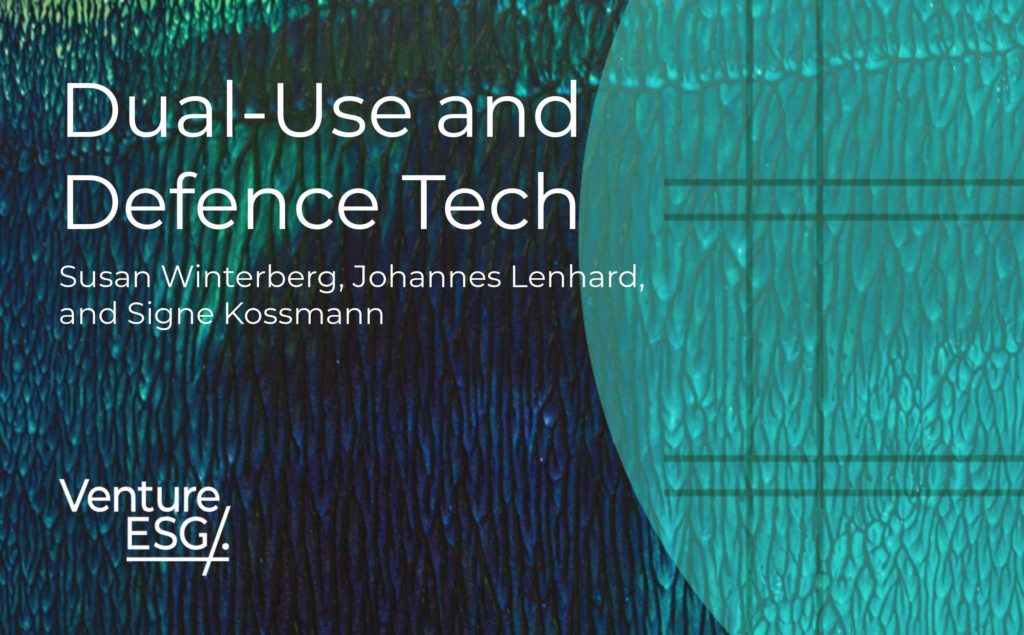
Dual-Use and Defence Tech Guidance
S. Winterberg, J.Lenhard, and S. Kossmann
May 2024
For our two white-papers firstly exploring the state of dual-use in VC and subsequently developing an ESG framework for dual-use investments, we interviewed 46 VC investors, limited partners and ecosystem experts with exposure to dual-use startups between September 2023 and March 2024, across the UK, Europe and the US. Our conversations focused on current challenges with dual-use investments, especially from an ESG (environment, social governance) responsible investing perspective and with a strong focus on Europe.
This led to the development a sector-specific ‘Universe of ESG Issues’. The tool is a first-of-its-kind due diligence framework for dual-use and deep tech for VCs and asset owners.
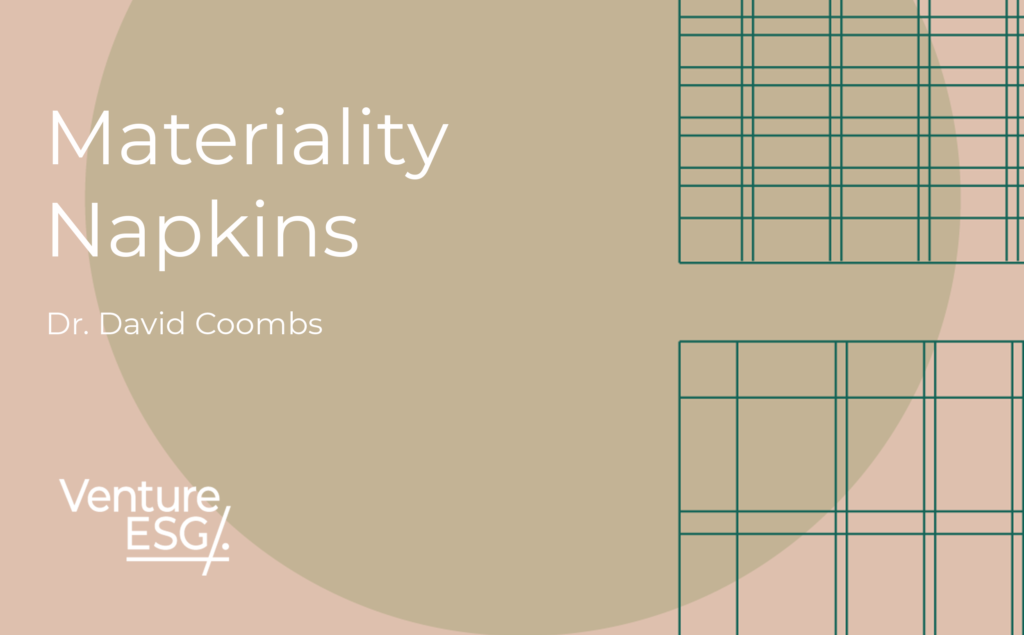
Materiality Napkins
April 2024
ESG is not ‘one size fits all’ but needs to be tailored to a company’s sector, business model, and funding stage. In ESG practice, financial materiality is the critical lens for tailoring ESG issues based on what is most financially impactful and relevant, i.e., the business case. In this White Paper, we are introducing a new, VC-specific ‘ESG DD materiality-filtering tool’ that gives VCs an efficient starting point to zoom in on the top priority, most financially important ESG issues in 5 sectors by stage of funding during the pre-investment process. The tool is kindly sponsored by Atomico, and was developed by speaking to over 60 VC ESG managers and sector-specialist VC investors over the course of 6 months.
Tool available to our VC and LP Communities, via our Notion resource bank.
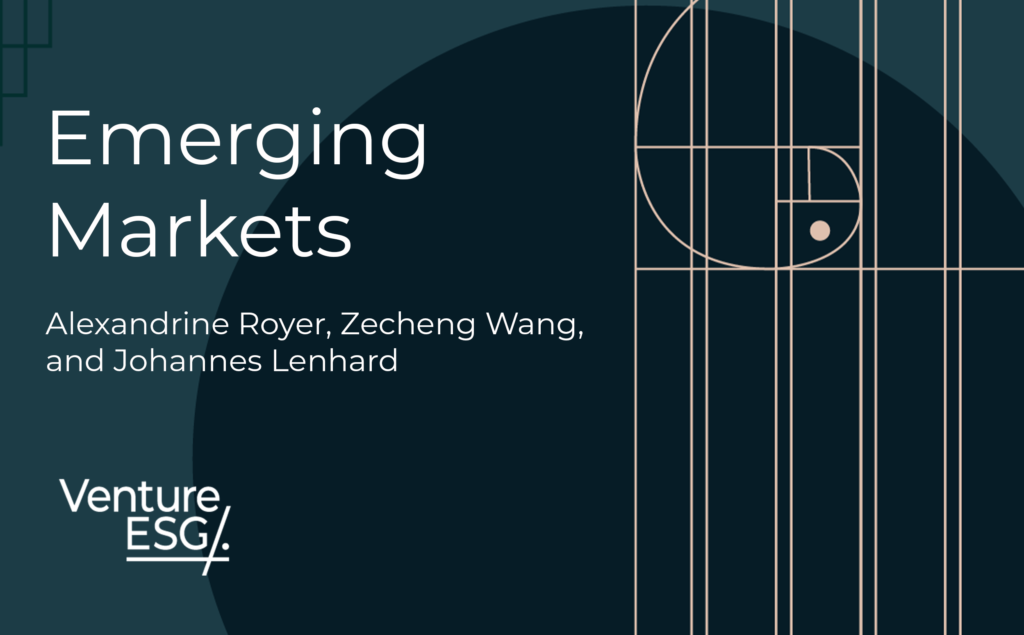
Emerging Markets
ESG integration is gaining traction in emerging markets, yet VCs and LPs lack fit-for-purpose resources to put it into practice. In partnership with BII and FMO, VentureESG has developed a pilot tool to serve as an ESG due diligence framework for VC fund managers operating in lower- and middle-income countries. This comprehensive tool covers 8 key areas for incorporating ESG into investments, tailored to the unique contexts of emerging markets, with customisable filters for different materiality considerations.
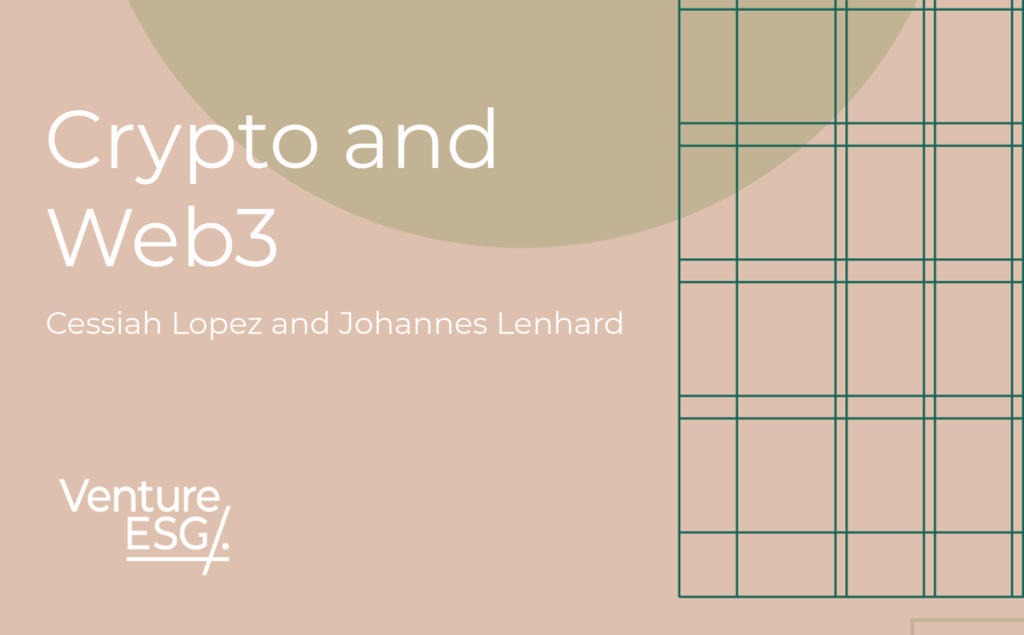
Crypto & Web3
December 2023
2023 saw crypto and web3 startups enter a phase of correction; as implosions of companies like FTX showed, ESG was one factor missing in the original build-up of the ecosystem. Could this be retro-fit? Developed by VentureESG and the Minderoo Centre for Technology and Democracy, University of Cambridge, the report ‘A Distinct Absence’ provides fundamental observations based on qualitative research with ecosystem participants and a practical ESG framework to help VC investors integrate ESG factors into their investment processes in crypto and web3.
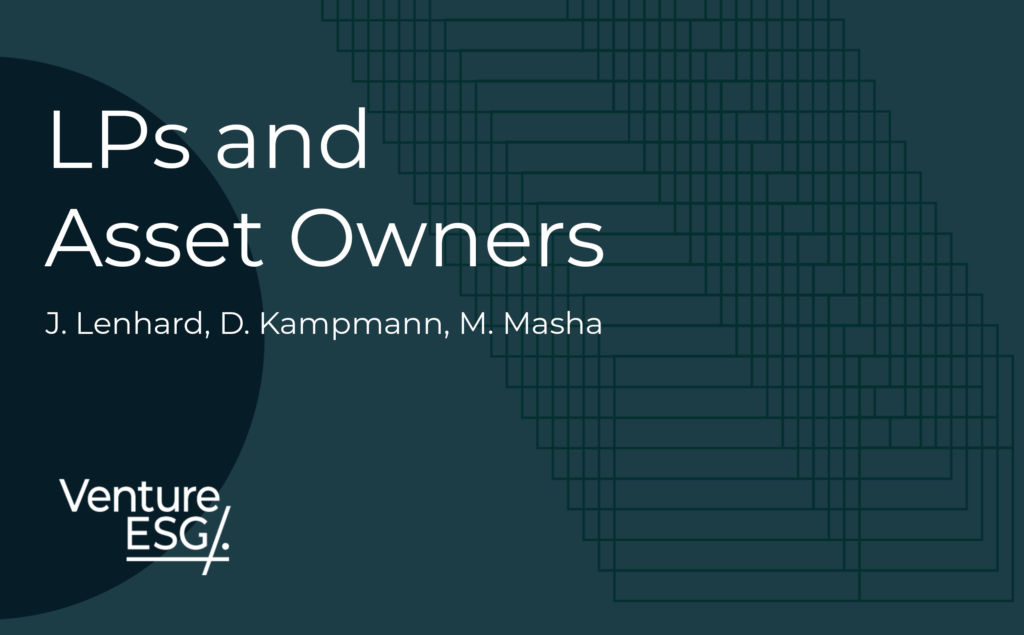
LPs and Asset Owners
J. Lenhard, D. Kampmann, M. Masha
July 2023
ESG is driven by many stakeholders – from regulators to investors – but LPs and asset owners have a very important role to play to enforce good ESG integration given their reporting, oversight and fund allocation requirements and function. In this VentureESG white paper, funded by Luminate, we provide a first insight into LP current behaviour and plans when it comes to ESG adoption and enforcement based on 25 qualitative long-form interviews with institutional asset owners between Europe and the US.
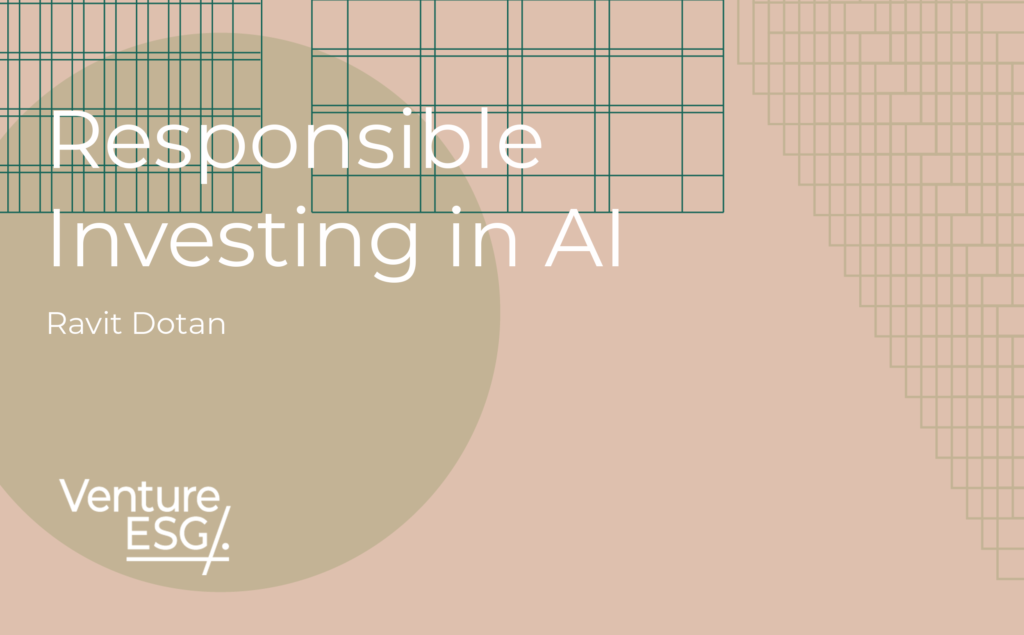
AI Ethics
May 2023
AI is part of an ever increasing number of VC-backed companies; the necessity to integrate AI Ethics into ESG for VC is hence growing rapidly. In a one-year project, Ravit Dotan developed a VC-specific toolkit consisting of a workflow and detailed guidebook on how to conduct an AI assessment. This project was funded by the IBM Tech Ethics Lab at the University of Notre Dame. You can read more in Ravit’s VentureESG blog post and on her homepage.
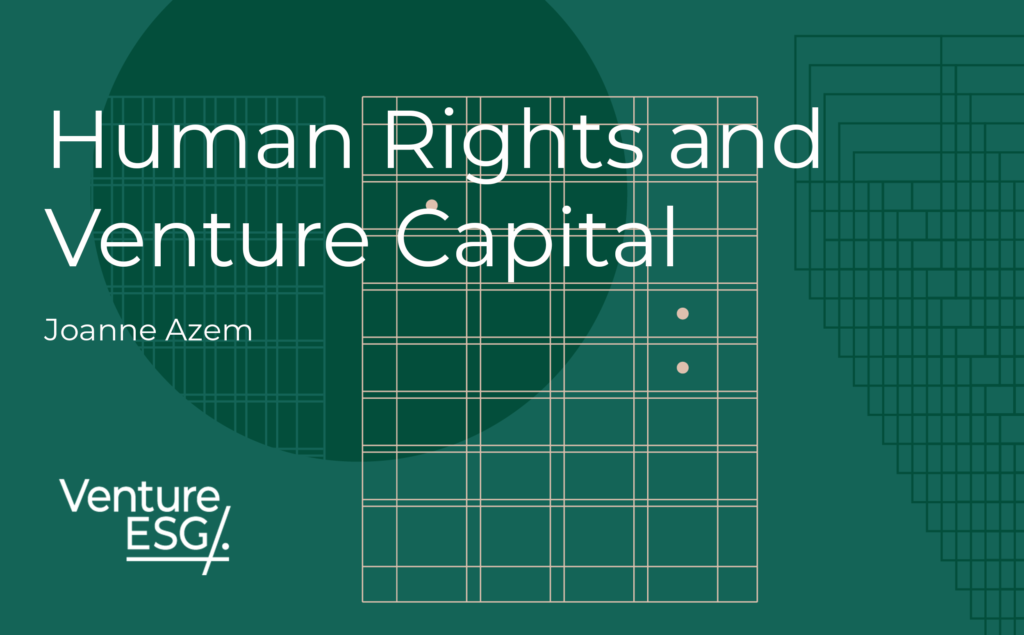
Human Rights
Joanne Azem
April 2023
The UN Guiding Principles lay out in detail how businesses are required to incorporate human rights into their operations and decision making; based on stakeholder interviews with civil society organisations, VCs and LPs, Joanne Azem puts together a fit-for-purpose human rights VC due diligence framework as a further extension to our universe of issues. This research was funded by Luminate and builds on their RightsWise framework as well as prior work by US AID and Caribou. Read our ImpactAlpha piece contextualising our insights.
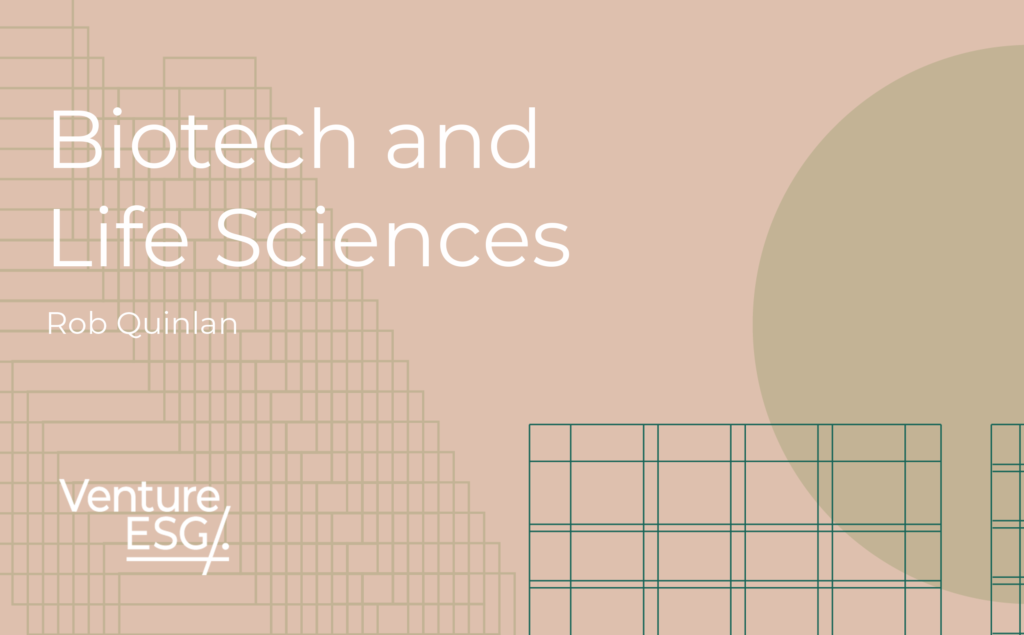
Biotech and Life Sciences
April 2023
While general ESG integration is relevant independent of company sectors, specific sectors, such as biotech and life sciences bring their own ESG challenges. In this one-year project, Dr Rob Quinlan, now senior scientist at the Crick Institute, produced an extension of our ESG universe of issues for biotech and life science investments. Based on interviews with 20+ biotech VCs and LPs, the resulting set of questions is useful both for due diligence and portfolio management to identify ESG challenges and possible areas of ESG improvement.
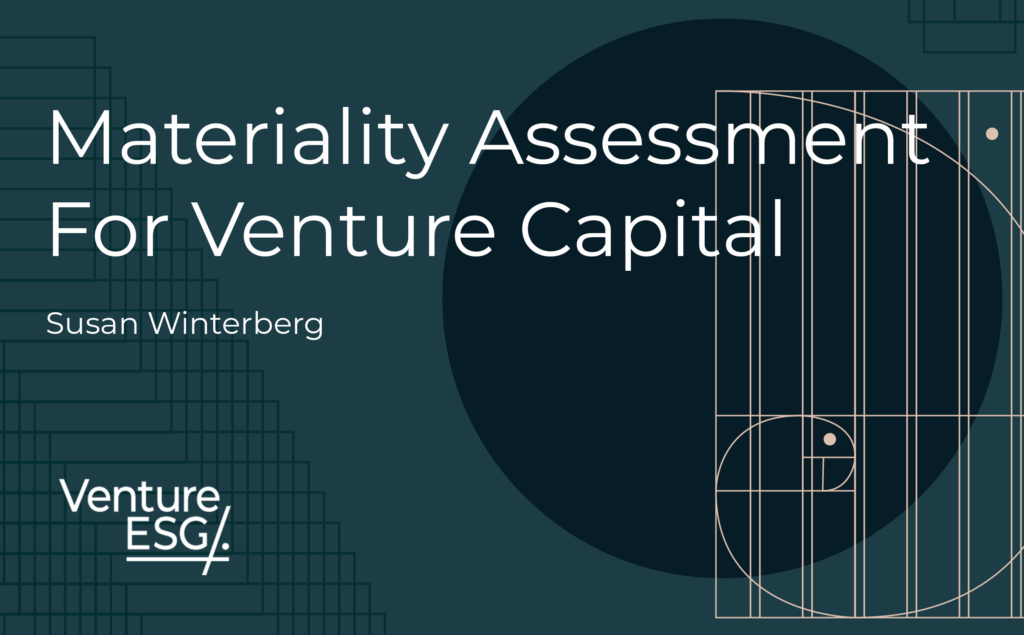
Materiality
October 2022
Integrating ESG into companies and investment decisions has been shown to have positive bottom-line implications – but only if the ESG factors are material. How can such a materiality assessment to identify material ESG factors be conducted in Venture Capital? The VentureESG White paper #2, authored by Susan Winterberg, outlines both the basics of materiality as well as concrete steps to conducting a materiality assessment and special considerations for evaluating ventures during early and growth stages.
The Definition
Johannes Lenhard and Elena Lutz
2021
While ESG has seen a surge among venture capital investors since 2020, confusion about what ESG is abounds. In this white paper, we propose a first fit-for-purpose working definition of ESG for VC based on twelve months of conversations with hundreds of industry stakeholders, VCs, LPs and academics alike. We contrast ESG with other terms such as impact, sustainable and ethical investing and CSR, embed it in its history and make a strong case for why ESG is the right term to use, also in the VC world, right now.

